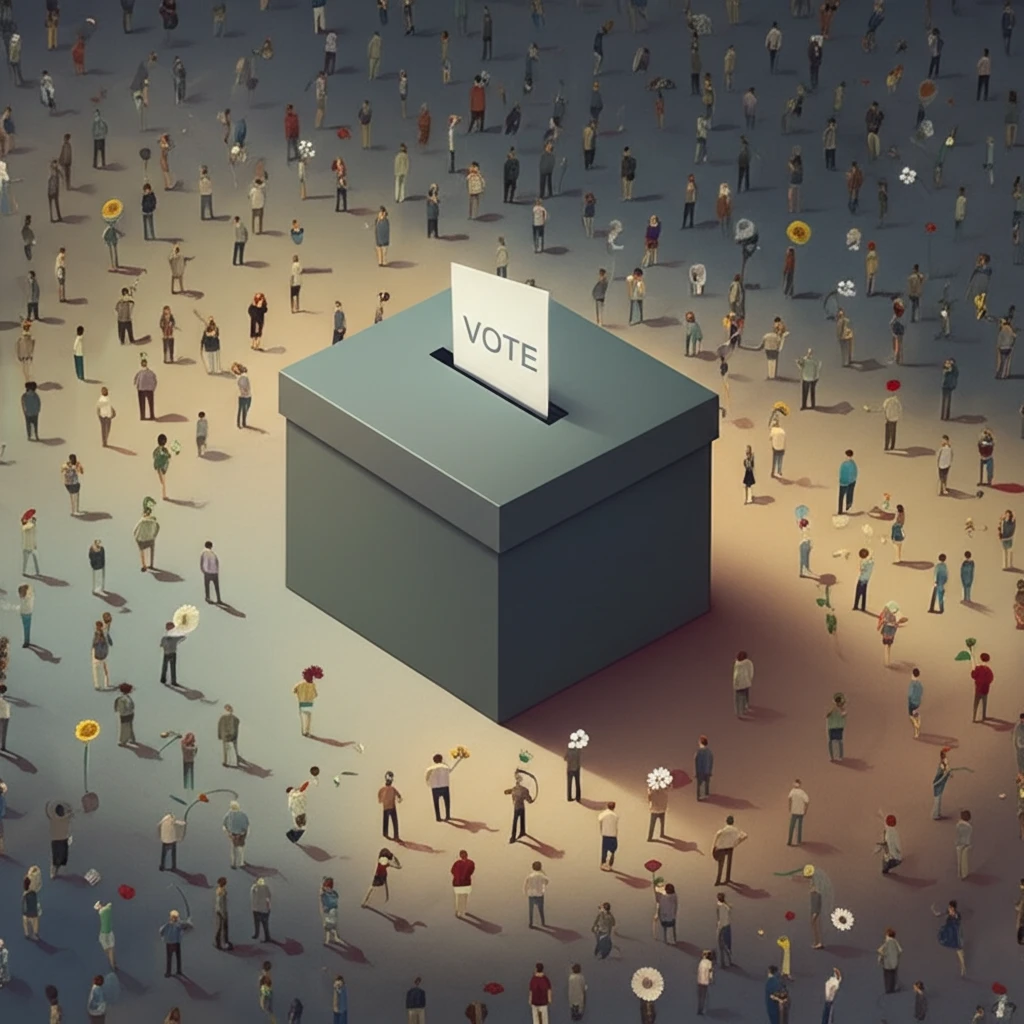
Why Voting Can Feel Pointless: Understanding the Impossibility Theorem
"Dig into the economic theory revealing why even the best voting systems might not always reflect everyone's preferences fairly."
Have you ever walked away from the ballot box feeling like your voice wasn't truly heard? Maybe the choices felt limited, or the outcome didn't quite align with what you hoped for. It turns out, this feeling isn't just a matter of individual experience; it's rooted in a deep theoretical problem in social choice known as the Impossibility Theorem.
At its core, the Impossibility Theorem, rigorously demonstrated in a recent research paper, highlights the inherent difficulties in creating voting systems that are simultaneously fair, efficient, and responsive to individual preferences. The research delves into scenarios where voters' preferences are complex and varied, and monetary transfers (bribes!) are off the table. It reveals a sobering truth: under quite general conditions, any voting system that attempts to be both efficient (in the sense of making decisions that benefit society as a whole) and incentive-compatible (meaning voters are encouraged to vote honestly) will inevitably be dictatorial – effectively handing all the decision-making power to a single individual.
This doesn't mean voting is a waste of time! But understanding the Impossibility Theorem can help us approach elections with more realistic expectations and push for reforms that mitigate its effects. Let's break down this important concept and explore why designing the 'perfect' voting system is such a challenge.
The Core Problem: Balancing Efficiency and Honesty in Voting

Imagine a scenario where your local community needs to decide on a new park design. Some residents favor a playground-focused space, while others want walking trails and gardens. Ideally, the winning design should reflect the collective desires of the community, maximizing overall happiness and satisfaction. This is the essence of 'Pareto efficiency' – making decisions that improve at least one person's well-being without making anyone else worse off.
- Pareto Efficiency: Making decisions that benefit society without harming anyone.
- Incentive Compatibility: Designing a system where honest voting is always the best strategy.
- The Catch: Achieving both simultaneously is surprisingly difficult, if not impossible.
What Does This Mean for Our Elections?
The Impossibility Theorem isn't a reason to give up on democracy. Instead, it's a call for greater awareness and a more nuanced approach to election reform. By understanding the limitations of voting systems, we can focus on strategies that mitigate the impact of the theorem and create more representative and responsive democracies. This might involve exploring alternative voting methods, promoting informed participation, or strengthening institutions that protect minority rights. The goal isn't to achieve a perfect, impossible system, but to continuously strive for a fairer and more equitable process for all.
